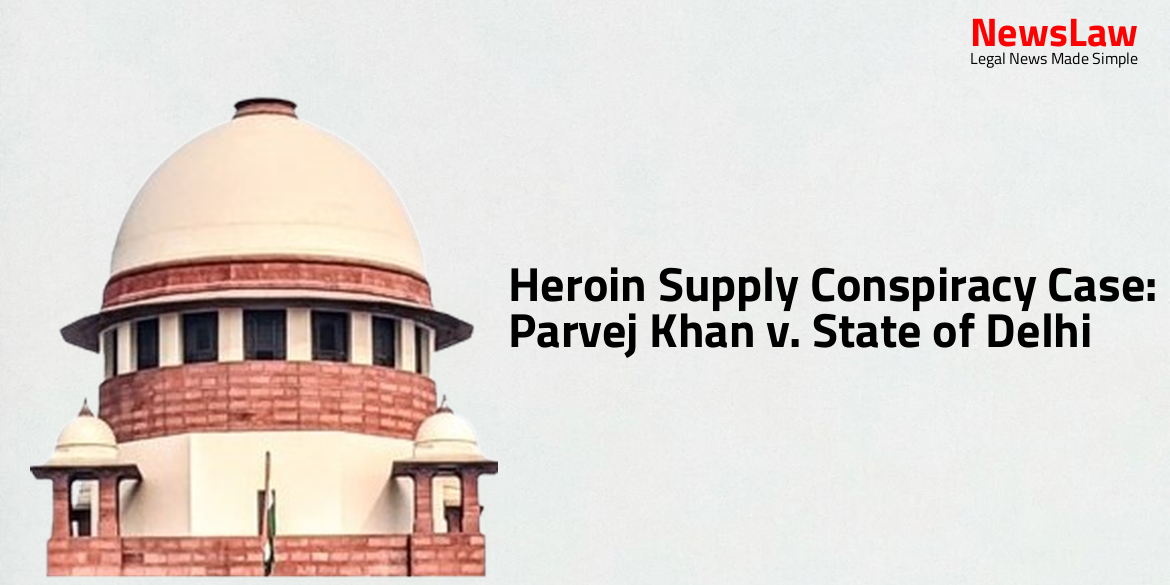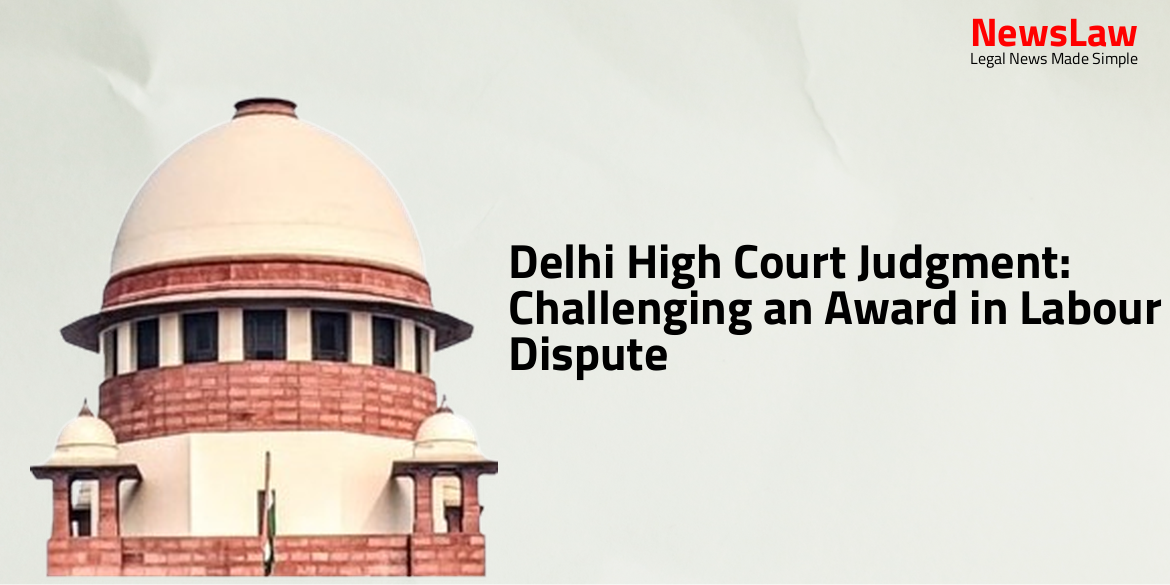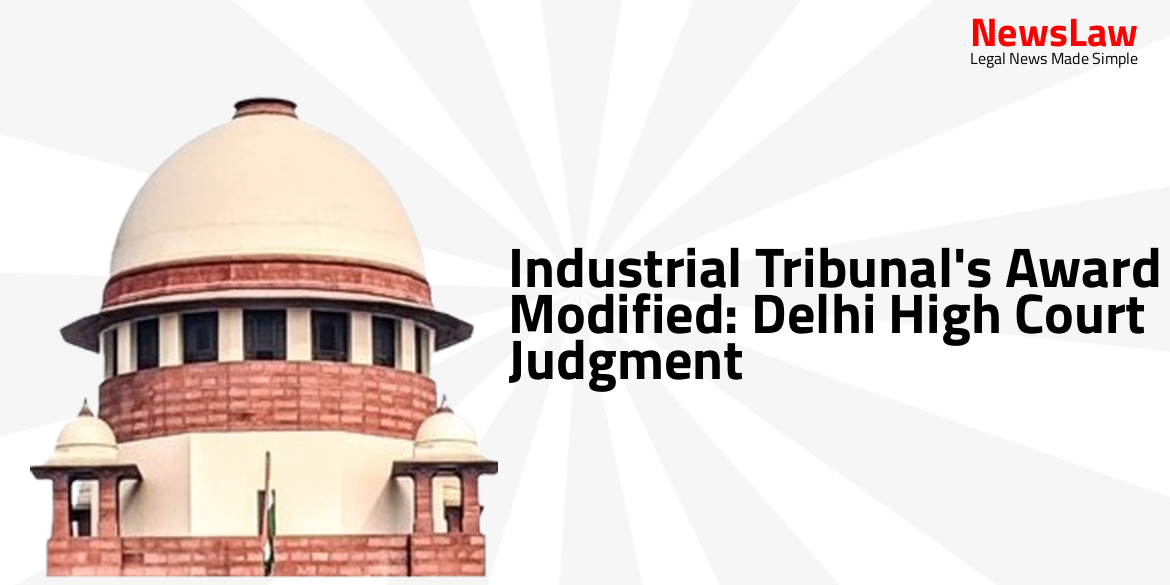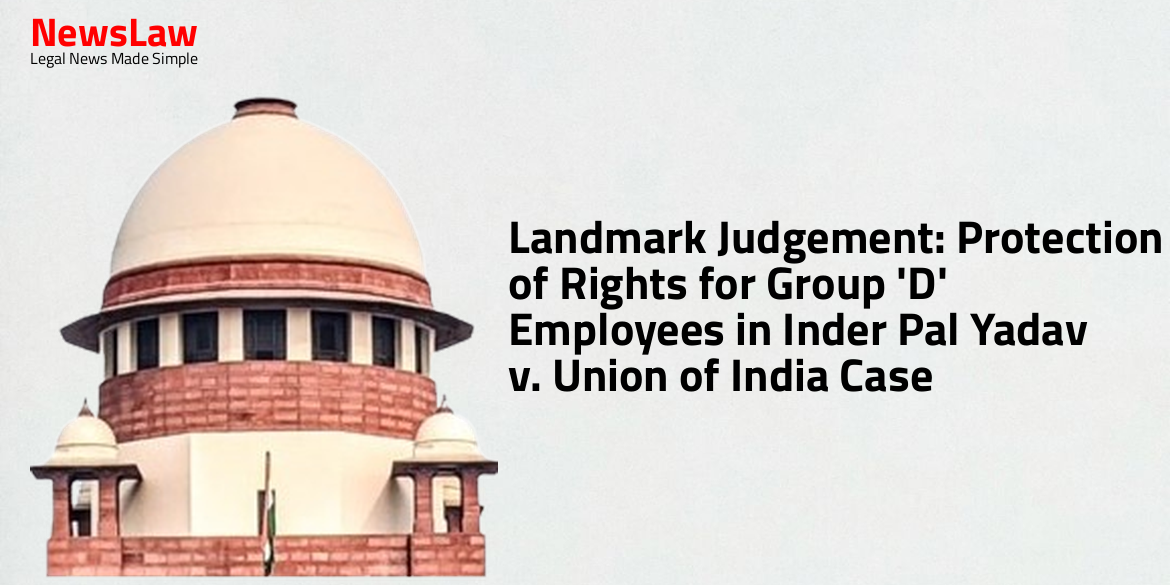In a recent judgement by the Delhi High Court, the case of heroin supply conspiracy involving Parvej Khan against the State of Delhi was revisited. The Court’s decision to grant bail in this case sheds light on the complexities of drug-related offenses and the considerations in determining bail eligibility. The judgement takes into account the nuances of Sections 42 and 43 of the NDPS Act, emphasizing the importance of legal procedures and individual rights in criminal proceedings.
Facts
- Secret information received by police on 20.11.2020 regarding drug supply near cremation ground in Delhi.
- Raid conducted resulting in apprehension of Alok Tripathi and Mohd. Anwar Ali with 5 kgs of heroin.
- Alok Tripathi disclosed involvement with Asif and Parvej in drug supply.
- Petitioner Parvej Khan apprehended on 21.12.2020 with 500 gms of heroin in his car.
- Mobile of petitioner seized during apprehension.
Arguments
- The genesis of the case, i.e., the conspiracy between co-accused Alok Tripathi and the petitioner, is not established.
- Voice samples of accused persons were taken at FSL Rohini, but no link between the petitioner and the accused is reflected in the CDRs.
- The petitioner’s voice matched intercepted calls related to drug trafficking activities.
- The petitioner’s interception and car search were based solely on Alok Tripathi’s disclosure statement, without a warrant or authorization.
- An involvement report shows the petitioner’s history of criminal cases.
- The prosecution has not provided CDRs or voice conversations in the charge sheet linking the petitioner to the case.
- The search of the petitioner’s car without warrant or authorization raises doubts about the evidence.
- The delay in deposition of case property and lack of a site plan further cast doubt on the prosecution’s case.
- The petitioner has been in custody for over three years, infringing on his right to speedy justice.
- The seriousness of the offence and commercial quantity of contraband recovered demand satisfaction of Section 37 NDPS Act conditions for bail.
- Opposition to bail by the State relies on specific case laws and the disclosure statement of co-accused Alok Tripathi.
- Mere pendency of several criminal cases against the accused cannot be the sole basis for refusal of bail.
- No prior information was available about the transportation of contraband substances in the Truck in this case.
- Private vehicle is not considered a ‘public place’ according to Supreme Court decisions.
- The prosecution’s case is supported by both the disclosure statement and the recovery of contraband from the private car of the petitioner.
Analysis
- Section 42 of the NDPS Act was not applicable as the vehicle was in transit and not stationary.
- The vehicle where the contraband substances were seized was not a public conveyance.
- Section 43 of the Act applies when searching a public conveyance in a public place without the need to record satisfaction as in Section 42.
- In this case, apprehension of the petitioner was based on a disclosure statement, leading to the seizure of contraband in his private car.
- The distinction between ‘conveyance’ in Section 42 and ‘conveyance in transit’ in Section 43 was highlighted.
- The vehicle was in transit in a public place when searched in the presence of a Gazetted Officer, making Section 43 applicable.
- The officer’s powers are drawn from Section 41(2) of the Act, not Section 42.
- Non-compliance with Section 42 does not warrant the petitioner’s release on bail.
- Seizure under Section 42 is subject to compliance with the proviso if done between sunset and sunrise.
- The trial court’s decision is restored due to the application of Section 43 in this case.
- Laws imposing stringent conditions for grant of bail may be necessary in public interest, but delays in trials cause immeasurable injustice to individuals.
- Prisonisation is a term referring to the radical transformation of prisoners, leading to loss of identity and hostility towards others.
- The mere pendency of criminal cases against an accused cannot be the sole basis for denial of bail, as observed by the Supreme Court.
- Overcrowded jails with appalling living conditions lead to psychological problems, loss of freedom, possessions, and dignity.
- Delays in trial proceedings can result in prolonged incarceration, which goes against the fundamental right under Article 21 of the Constitution.
- Incidents where accused persons are involved in drug offenses of commercial quantity raise specific bail considerations under Section 37 of the NDPS Act.
- The right to a speedy trial cannot be curtailed by the stringent conditions of Section 37 of the NDPS Act.
- The non-compliance of Section 42 of the NDPS Act and admissibility of confessional statements are critical aspects in determining bail eligibility.
- The High Court’s discretion in granting bail is guided by various factors, including the nature of the offense and length of incarceration.
- In cases involving substantial quantities of drugs, the conditions for granting bail become more stringent, considering the gravity of the offense.
- Section 43 of the NDPS Act allows officers to seize narcotic drugs or psychotropic substances in public places or in transit if they have reason to believe an offence has been committed.
- Officers can detain and search individuals suspected of committing an offence under the Act.
- Section 42 allows entry and search of buildings, conveyances, or enclosed places, while Section 43 focuses on seizures in public places or in transit.
- The term ‘public place’ includes places like public conveyances, hotels, shops, accessible to the public.
- Officers can exercise this power between sunrise and sunset without a warrant, but must justify entering between sunset and sunrise to prevent evidence concealment or offender escape.
- The petitioner’s involvement is not alleged in cases under the NDPS Act.
- Considering the circumstances, the petitioner has made out a prima facie case for the grant of regular bail.
Decision
- The petitioner has been granted regular bail upon furnishing a Personal Bond of Rs.50,000/- and one Surety Bond of the like amount.
- He is required to appear before the Trial Court whenever the matter is scheduled for a hearing.
- The petitioner must not tamper with evidence or engage in any unlawful activities that could impact the trial proceedings.
- He is obligated to provide his residing address after release and notify the concerned IO/SHO in case of any address changes.
- The petitioner has to share his mobile number with the concerned IO/SHO and keep his mobile phone switched on at all times after release.
- The judgement specifies that any observations mentioned are solely for the present bail application and do not indicate an opinion on the case’s merits.
- It is mandated that the petitioner refrains from contacting, meeting, or influencing the complainant, prosecution witnesses, or any individuals connected to the case.
Case Title: PARVEJ KHAN Vs. THE STATE NCT OF DELHI (2024:DHC:4725)
Case Number: BAIL APPLN.-2863/2023



